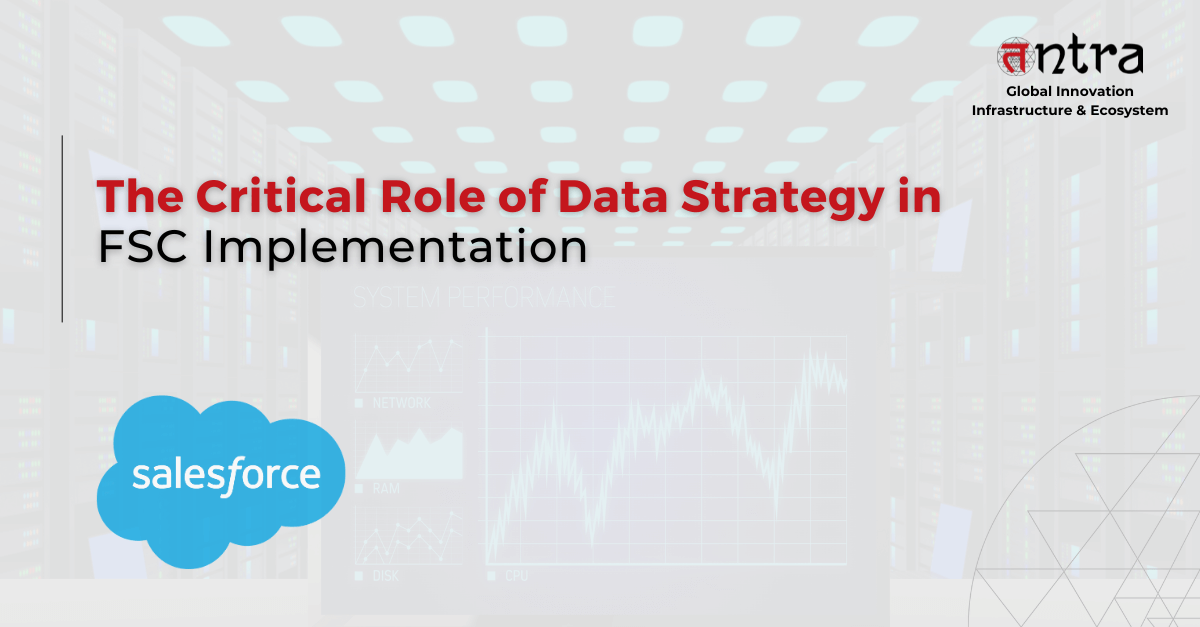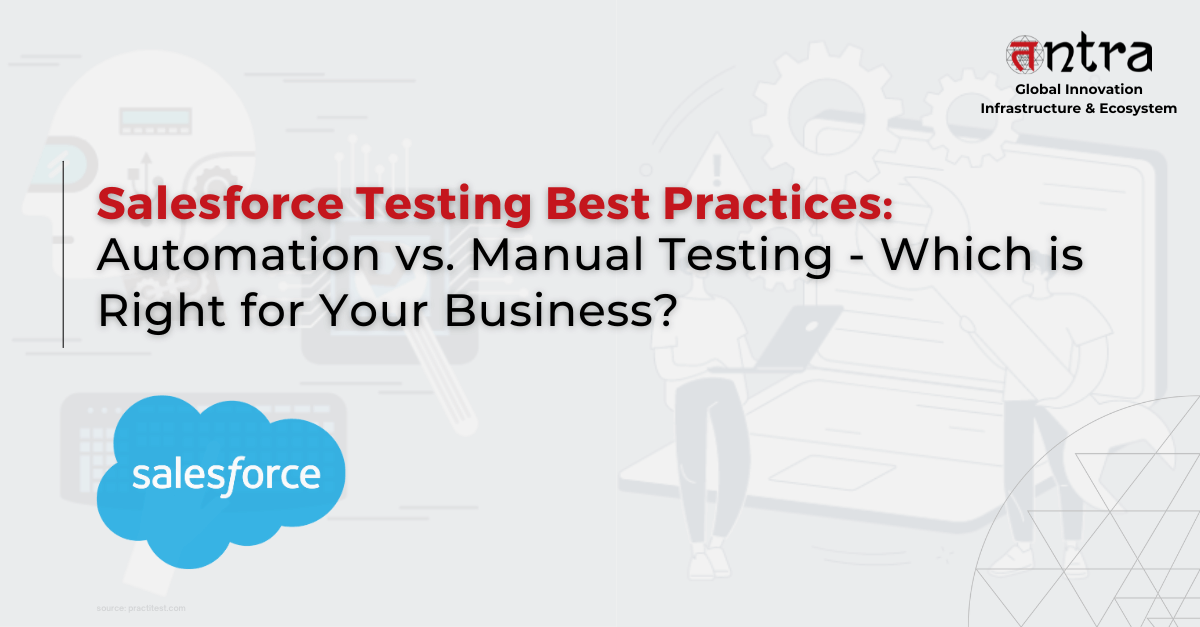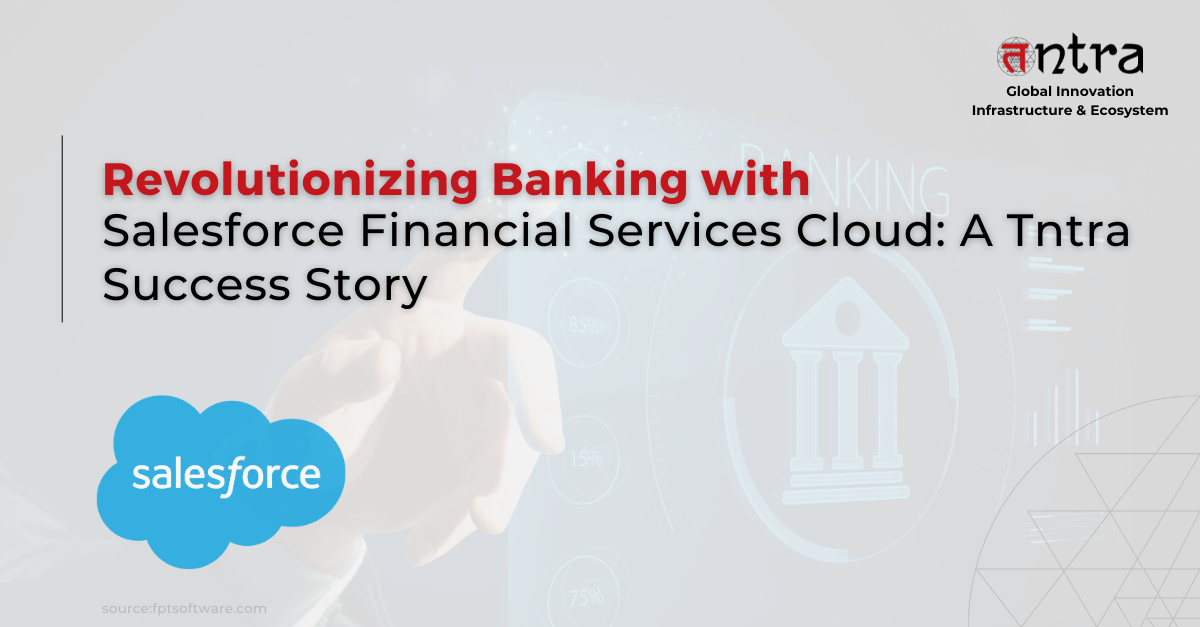
The Critical Role of Data Strategy in FSC Implementation
Table of Contents
ToggleA clear data strategy for FSC implementation is essential for financial institutions to fully leverage salesforce financial services cloud(FSC). By addressing challenges such as data fragmentation and integrating disparate systems, organizations can ensure seamless data integration for FSC. Strong data governance and alignment with business goals are key to maintaining data quality and improving decision-making. Tntra’s expertise in salesforce Financial Services Cloud solutions helps businesses modernize data infrastructure, enhance customer experiences, and drive long-term success through better data management and integration. Continue reading to learn more.
Huntington, an Ohio-based regional bank with $56 billion in assets, desperately wanted to create a warmer, more trustworthy relationship with its customers – one as close to a friend offering advice-something. Of course, its customer data was fragmented: across 16 different business segments, each with its own systems feeding customer insights into multiple CRM systems. “The result was inconsistent experiences for customers, disjointed processes, and higher costs relative to licensing, training, and maintenance,” says Kathy Snyder of Forrester.
In its decision to place all customer data on a single platform, Huntington’s leadership chose to adopt salesforce. Moving to Salesforce’s secure cloud applications enabled the bank to streamline operations and ensure adherence to ever-changing government regulations. More than 8,000 employees, from branch tellers to wealth managers, now have a complete, 360-degree view of every customer, leading to better customer insights and a more personalized service.
Integration with salesforce revolutionized Huntington’s relationship with its customers. By placing all information on a single platform, employees could now refer customers across departments with ease and cross-sell related products such as auto loans, mortgages, and insurance. The bank utilized the various tools provided by salesforce to engage more effectively with customers and customize their offers according to the different stages in a customer’s life. Targeted business data in Data.com further enhanced the CRM by helping the bank’s commercial bankers identify new opportunities.
Employee adoption was high, while the bank reduced IT costs and time to deploy new functionalities significantly. Cross-selling rose, customer acquisition surged, while the overall customer experience has become more personalized and efficient.
The platform helped Huntington deepen its relationships with its customers by establishing a flexible, adaptive environment that enhances both internal collaboration and customer satisfaction. In fact, this transformation also aligns with Huntington’s goal to be a relevant, customer-focused organization offering timely advice and services that align with customer needs.
(Source: Salesforce)
Salesforce for Modern Businesses: A Growing Need
On average, salesforce CRM users see decision-making speed up by 38 percent, revenue growth leaps of 18.4 percent, and a 35 percent increase in customer satisfaction. Those are great “big picture” figures, but drilling down into the details really continues to astound, amaze, and deliver all over again.
By the end of 2027, the global market value of salesforce services will attain $12 billion, growing with an impressive compound annual growth rate of 7.9 percent during the forecast years.
Data Strategy and Its Importance in FSC Implementation
In today’s fast-evolving financial services industry, digital transformation is key to competitiveness. A data-driven transformation in financial services relies heavily on a modern and comprehensive data strategy tailored to industry needs. The implementation of the salesforce financial services cloud (FSC) is a crucial step toward delivering personalized services, improved customer engagement, and enhanced operational efficiency for financial institutions. However, the success of fsc implementation largely depends on a well-defined data strategy for the financial services industry that incorporates a robust data strategy and management approach. By leveraging a data strategy framework for the financial services industry, financial organizations can maximize the value of their investments in salesforce, driving both business growth and operational excellence.
Importance of a Clear Data Strategy for FSC Implementation
A data strategy for FSC implementation serves as the foundation for successful digital transformation in the financial services sector. The importance of data strategy in salesforce FSC cannot be overemphasized. Financial institutions deal in enormous data: from customer profiles down to the minutest piece of transaction history and investment portfolio. This must be appropriately captured, integrated, and aligned with the business’ objectives if salesforce FSC is ever to realize full value. All these pieces of data start to become isolated if no proper data strategy has been strategized, resulting in incomplete views of customers, impediments in service delivery, and lost business opportunities.
By prioritizing the data strategy, organizations can ensure that their salesforce financial services cloud solutions are implemented in a manner that is continually optimized for evolving business needs. A comprehensive data strategy helps enterprises map how data flows across the systems, defines data governance policies, and identifies key metrics to track performance.
Challenges of Integrating FSC with Disparate Data Systems
One of the most major challenges that financial institutions experience while implementing FSC is definitely its integration of FSC with disparate data systems. Legacy systems and different data sources, siloed and inconsistent, obstruct smooth data integration. Therefore, it reduces the overall effective implementation of salesforce FSC. Wherever the data is present in different systems like core banking systems, CRM, or third-party apps, unified customer views can hardly be expected, much less real-time decisioning.
Besides, poor data quality, whether through duplication, outdated information, or errors, may cause a disturbance in workflows and deteriorate customer experience. All these challenges can be overcome by ensuring that data from all systems is seamlessly integrated into one unified platform, such as salesforce. The integration should also be in accordance with the industry regulations to ensure that the data privacy and security are upheld.
Solutions to Ensure Data Alignment with Business Goals
To ensure data integration for FSC aligns with the business goals of a financial institution, a strategic approach will be necessary. First, organizations should undertake a proper audit of their data, identifying data gaps, assessing the quality of data, and understanding how that data aligns with business objectives. From there, organizations can develop a roadmap for migrating, integrating, and cleansing data from disparate sources into salesforce FSC.
All of these steps involve building a robust data governance framework, including setting up policies and procedures for the management of data, ensuring its accuracy, and defining roles for data stewardship. Engaging a salesforce financial services cloud consultant can help organizations implement best practices tailored to their unique needs. Financial services cloud consultants play a crucial role in designing and deploying frameworks that align with internal business processes and customer expectations. Effective financial service cloud implementation further ensures continuous monitoring to keep data aligned with business goals while adhering to FSC implementation best practices for optimal outcomes.
Tntra’s Approach to Overcome Data Challenges
Tntra is a leading company in offering innovative salesforce financial services cloud services,
catering to the particular needs of financial institutions. We develop our approach to data modernization and salesforce financial service cloud solutions based on a strong foundation in software product engineering services. We address challenges around financial services cloud data by integrating salesforce with their current systems for seamless flows and aligning data toward business goals.
Through close collaboration with our clients, we create tailored solutions that reduce the intricacy of integrating multiple data sources, enhance the quality of data, and provide a single, consolidated, and actionable customer view. This allows financial institutions to offer personalized services, optimize operations, and make more informed decisions, ultimately driving long-term business success.
Final Thoughts: The Role of Data Modernization in Salesforce FSC Success
A robust data strategy plays a vital role in the successful implementation of Salesforce Financial Services Cloud (FSC), ensuring that financial institutions achieve maximum value from their Salesforce investment. Leveraging Salesforce Consulting Services and adopting tailored Salesforce FSC data strategy solutions can help streamline operations and deliver enhanced customer experiences. By addressing common data integration challenges specific to FSC and adhering to best practices, organizations can fully unlock the potential of their FSC implementation. With Tntra’s approach to data modernization, businesses can overcome these challenges effectively, guided by the expertise of a financial services cloud consultant, to achieve sustainable growth and improved operational efficiency.
With Tntra’s expertise as a software product engineering company, we help our clients modernize their data infrastructure and align more to business with Salesforce FSC. Contact us today!
How to create a Data Strategy for FSC Implementation?
To create an actionable data strategy implementation plan in the organization, the data should be aligned with the business objectives; a clear understanding of the unique Financial Services cloud data challenges should be gained; it should articulate actionable steps for success. It ensures less bulky movement of data in FSC and its full use in the industry.
What are the 5 Essential Components of a Data Strategy?
The primary components of the data strategy fit within the broader FSC framework – Clear data objectives, data quality and security, align data to business goals, enable actionable insights, and Data Strategy Framework for the Financial Services Industry. These will be the keys to unlocking true data challenges faced in driving effective decision-making.
What is the Role of Data in the Strategic Decision-Making Process?
Data shapes and is integral to the strategic decision-making process, delivering insights organizations can act on. By aligning data with business goals in FSC and adopting a Data Strategy Framework, the financial services industry will leverage information assets for operational efficiency and innovation, with the assistance of software product engineering services from a trusted software product engineering company.





